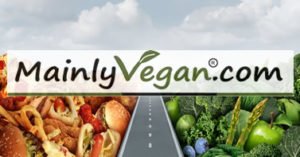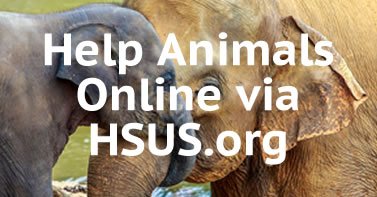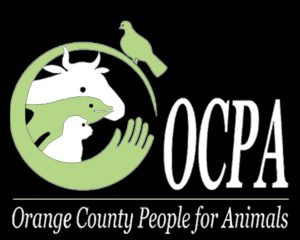Much evidence points to the numerous benefits derived from a plant-based vs. meat-based diet. Many health organizations, government health agencies and nutritionists now agree that the best diet contains very little or no meat.
Not only is going veg*n the most powerful and immediate thing you can do to help animals killed for food, but adopting a vegetarian or vegan diet also helps eliminate obesity, illness and disease.
The consumption of animals, eggs, dairy and fish / seafood causes serious health problems including cancer, diabetes, heart disease, obesity, high cholesterol levels and more.
Diseases
Meat and dairy-centered diets are linked to many types of cancer, as well as heart ailments, diabetes, obesity, gallbladder disease, hypertension, kidney failure, and other deadly diseases and disorders.

According to the American Heart Association, coronary heart disease is the single leading cause of death in the U.S. today and are almost all diet related – caused by the consumption of animal products.
And contrary to the popular belief that dairy products are a necessary calcium source to prevent osteoporosis, dairy consumption actually increases the likeliness of this crippling disease because meat and dairy products raise the acid level in human blood, causing calcium loss.
A recent study from the National Cancer Institute claims that young women who eat more red meat and dairy products are almost four times more likely to get breast cancer. This is just one in many incentives for women to forego fatty foods and consume fresh fruits, vegetables and whole grains.
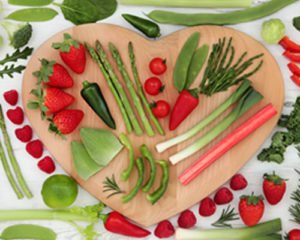 For nearly a decade, the World Health Organization has said that a diet rich in sugar, meat and other animal products will cause heart disease and cancer to continue as the world’s major health problems. It has also urged the government to bolster its plant food industries, including vegetables and fruits, and to limit those known to contribute to chronic disease – the meat, dairy, and egg industries. Such recommendations could save countless lives, but they would also take a huge bite out of the profits at some of the nation’s biggest food companies.
For nearly a decade, the World Health Organization has said that a diet rich in sugar, meat and other animal products will cause heart disease and cancer to continue as the world’s major health problems. It has also urged the government to bolster its plant food industries, including vegetables and fruits, and to limit those known to contribute to chronic disease – the meat, dairy, and egg industries. Such recommendations could save countless lives, but they would also take a huge bite out of the profits at some of the nation’s biggest food companies.
More than half of the Dietary Guidelines Advisory Committee members have financial connections and extensive ties to the meat, dairy, sugar, processed food, egg, and supplement industries. These include Procter and Gamble, the Cattleman’s Beef Association, the National Dairy Board, M and M Mars, the American Egg Board, and other large corporations and interest groups.
Illnesses
Many illnesses are contracted by consuming meat and animal-based products. Bacterial infections such as E.coli, salmonella, campylobacter, listeria, botulism and others are very common among people who consume animals.
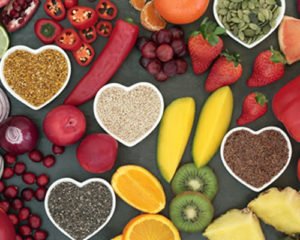 Food poisoning is on the rise in the U.S. and worldwide. Foods are poisoned by microscopic germs that get into them including viruses, bacteria, parasites and even worms. And almost all (95 percent) food poisoning today originates from animal agriculture and foods. Food produced on a big scale, as seen with factory farms, leads to food poisoning on a big scale. The conditions in which the animal lives, the food the animals eat, the environment in which the animals are slaughtered, the butchering and processing methods, the meat transportation, the restaurants/food service industry, and the handling at home all contribute to food poisoning.
Food poisoning is on the rise in the U.S. and worldwide. Foods are poisoned by microscopic germs that get into them including viruses, bacteria, parasites and even worms. And almost all (95 percent) food poisoning today originates from animal agriculture and foods. Food produced on a big scale, as seen with factory farms, leads to food poisoning on a big scale. The conditions in which the animal lives, the food the animals eat, the environment in which the animals are slaughtered, the butchering and processing methods, the meat transportation, the restaurants/food service industry, and the handling at home all contribute to food poisoning.
Meat also contains approximately 14 times more pesticides than plant foods. Fifteen million pounds of antibiotics are used in animal production every year which end up in dairy products and meat. Ninety-five to 99 percent of toxic chemical residues in the American diet come from animal sources.
Obesity
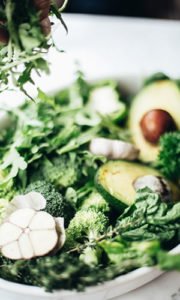
Americans have been getting heavier for three decades, and with extra weight comes serious medical problems such as diabetes, high blood pressure, asthma and kidney failure. Obesity is the fastest growing disease in America, with two-thirds of adults overweight and one-third obese. Obesity is now identified as the second leading cause of preventable deaths in the U.S. And 25 percent of children between ages six and 19 are overweight or obese.
Some states now require fast food and chain restaurants to post nutrition information. Others are eliminating junk food advertising campaigns aimed at youngsters and offer more healthful alternatives at schools.
Although diets such as Atkins, Keto, South Beach, Eat Right for Your Type or The Zone might work for some people on a temporary basis, a plant-based diet is the best and healthiest way to lose excess weight and keep it at bay. And a plant-based diet is more likely to meet the daily requirements for fat, carbohydrate, and protein than a meat-based diet.
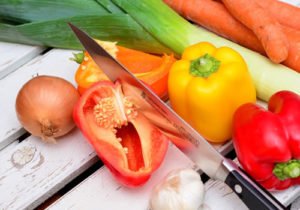 It seems the fewer animal products your diet contains, the healthier it is. As long as you eat a variety of foods including grains, fruit and vegetables, beans, nuts and seeds, a small amount of fat, your diet will be healthy and you will be getting all of the nutrients you need.
It seems the fewer animal products your diet contains, the healthier it is. As long as you eat a variety of foods including grains, fruit and vegetables, beans, nuts and seeds, a small amount of fat, your diet will be healthy and you will be getting all of the nutrients you need.
Going Veg*n
By following a pure vegan diet, you can reduce the risk of heart attack by 90 percent. As a vegetarian, you can reduce the risk from certain cancers by up to 40 percent, lower cholesterol levels, reduce health problems related to obesity, and avoid fatal diseases such as E.coli, food poisoning and mad cow disease.
Almost immediately upon adopting a plant-based diet, many people report increased energy levels, enhanced spirituality and deeper connection with all living beings, weight/cellulite loss, reduction in illness (colds, flus), and improved bodily functions.
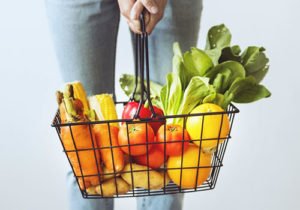 It is easier to find vegan food items in grocery stores and restaurants today than ever before. Soy is a great source of protein that is low in fat and has no cholesterol — and you can find it in many other forms besides tofu. Many major grocery chains now carry non-dairy milks / creamers, cheeses, yogurts, cream cheeses, sour cream and ice cream, egg-free mayonnaise. And it is not difficult to find plant-based meat alternatives such as lunch meats, veggie dogs / sausage / brauts, veggie ham, veggie burgers, vegan / vegetarian frozen entrees, “chicken” patties / nuggets / breasts, hamburger (crumbles), meatballs, pepperoni, bacon, jerky, and more. Incredibly, you can even find plant-based seafood alternatives shrimp, scallops, tuna, crab, fish fillets or salmon.
It is easier to find vegan food items in grocery stores and restaurants today than ever before. Soy is a great source of protein that is low in fat and has no cholesterol — and you can find it in many other forms besides tofu. Many major grocery chains now carry non-dairy milks / creamers, cheeses, yogurts, cream cheeses, sour cream and ice cream, egg-free mayonnaise. And it is not difficult to find plant-based meat alternatives such as lunch meats, veggie dogs / sausage / brauts, veggie ham, veggie burgers, vegan / vegetarian frozen entrees, “chicken” patties / nuggets / breasts, hamburger (crumbles), meatballs, pepperoni, bacon, jerky, and more. Incredibly, you can even find plant-based seafood alternatives shrimp, scallops, tuna, crab, fish fillets or salmon.
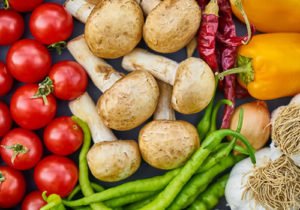 Even McDonald’s, Burger King and other fast food chains now offer veggie burgers and vegetarian options. And most restaurants offer several vegetarian or vegan options on the menu. Many hamburger restaurants will substitute a veggie patty in any of their gourmet burger offerings.
Even McDonald’s, Burger King and other fast food chains now offer veggie burgers and vegetarian options. And most restaurants offer several vegetarian or vegan options on the menu. Many hamburger restaurants will substitute a veggie patty in any of their gourmet burger offerings.
Initially, going veg requires a little bit of research, possibly a few grocery shopping changes, and some experimentation to find the foods and recipes you like best. But once a change becomes a habit, it no longer seems inconvenient. And going veg is one of the most dramatic ethical improvements you can make in your life.
